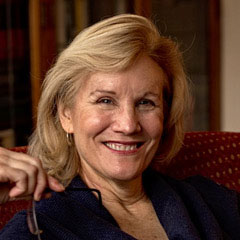As a physician and bioethicist, I have spent the last 30 years caring for people during their most vulnerable times, helping them make important health decisions—sometimes life and death decisions. Behind the medical curtain, I witness the capriciousness of the lottery of life. People do not choose their genes, their parents, or the school district in which they grew up. They do not decide to get cancer, heart disease or to have a catastrophic accident. Life happens, and all of us will need health care at some point. When we do, we will likely experience a profound vulnerability. How we respond to one another's inescapable medical vulnerability is the moral question of our time.
Despite the Senate's recent failure to pass the initial Republican repeal-and-replace, the Trump administration is undermining both Medicaid and the Affordable Care Act in other ways. That threatens all of us. It undermines the common good. And it defies both global moral consensus and the promises made in America's Declaration of Independence. Let's look at moral arguments in support of universal health care (that is, some version of "Medicare for everybody").
Our Founding Fathers talked about three inalienable rights: to life, liberty and the pursuit of happiness (commonly understood at the time as personal fulfillment or human thriving). A right to life without a right to health care seems hollow.
The world community seems to agree. In 1946, when the world order had come to the brink of collapse threatening the liberty, health, and lives of entire populations, the United Nations established the World Health Organization, arguing for “. . . the highest attainable standard of health as a fundamental right of every human being.” Health as a human right (a right by virtue of simply being human) has been reaffirmed in Article 25 of the United Nations' Universal Declaration of Human Rights (1948), and subsequent human rights documents.
For rugged individualists and others who do not believe in the language of human rights, there are other compelling moral arguments. It’s hard to dismiss research demonstrating that other industrialized countries with universal health care cover everyone, spend less, get better outcomes, and have greater satisfaction rates than the US. In other words, these systems are driven by prudence, pragmatic outcomes and fiscal stewardship.
When we tolerate a society that does not ensure access to health care, we engender not only poorer health status, but also loss of human potential and more problems— including social instability and violence, substance abuse, bankruptcies and unemployment. Indeed, a committee of the National Academy of Medicine estimated that the “benefits in terms of the value of healthy life years gained by providing coverage to those currently uninsured are likely greater than the incremental societal costs of the additional health care services that they would receive if insured.
Most countries figured this out years ago. They treat health care as part of the social contract based upon the common good . Healthcare is an essential service in which all of society has a stake, just like clean drinking water, emergency services, public education, safe roads and bridges. Health care is fundamental to safety, preservation of life, human thriving and equality of opportunity. The international community, speaking through the Constitution of the World Health Organization, has unequivocally said that “governments have a responsibility for the health of their peoples which can be fulfilled only by the provision of adequate health and social measures.” The U.S. is now the ONLY industrialized country without universal health care.
Indeed, sixty percent of Americans agree that health care is an appropriate responsibility of government. Even those who disagreed still overwhelmingly favored keeping Medicare and Medicaid—which are, of course, government insurance programs.
And finally, religious mandates provide another source of moral guidance. Essentially every religious tradition tells us to care for the sick. Each has a version of the Golden Rule, i.e., to treat others as we would want to be treated. These obligations to one another are not meant to be empty words, optional only when convenient. They are serious moral obligations we owe to each other.
In short, the moral arguments in favor of universal health care are robust and plentiful. How about those against? I am at a loss to come up with a single moral argument against it, or conversely in favor of health care as a privilege. Can you?
Kristi L. Kirschner MD, Chicago, Illinois

